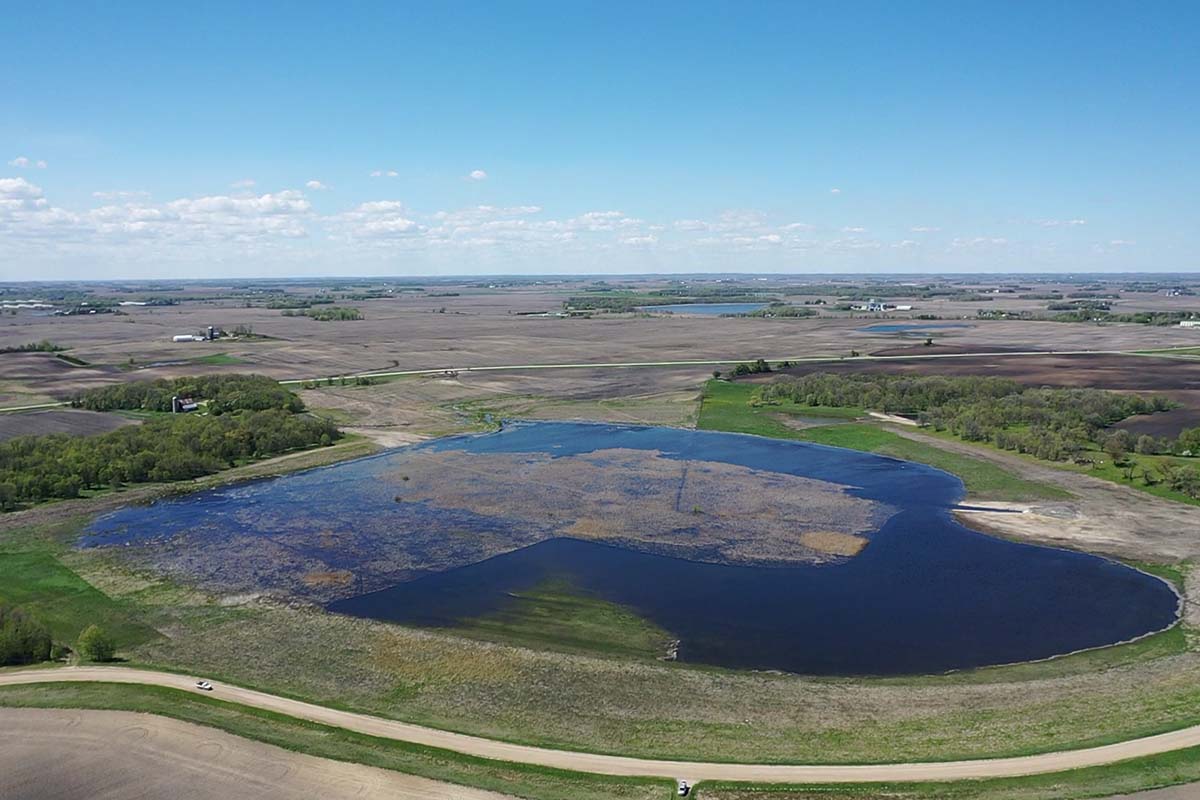Prairie Pothole, Upland Habitat Restored in Western Minnesota
Drained a century ago, Butler Lake is now a thriving 66-acre shallow lake
Drained a century ago, Butler Lake is now a thriving 66-acre shallow lake

Over the last decade, Ducks Unlimited (DU) has partnered with the U.S. Fish and Wildlife Service (USFWS) and Meeker County, Minnesota, to restore 66-acre Butler Lake. The lake, which once spanned 200 acres, was drained over a century ago through a concrete subsurface tile.
“After the lake was drained, the lakebed was carved up and the land was distributed accordingly to each bordering landowner,” said USFWS Project Leader Scott Glup. “When the old tile started to fail, Meeker County partnered with DU and USFWS to design and build a new water control structure on the lake outlet to restore water levels.”
Construction of the project was completed in late winter 2024, and subsequent spring rains completely refilled the basin. Waterfowl and other wetland-dependent wildlife began using the restored lake immediately. DU also restored four prairie pothole wetlands on the private land surrounding the lake.
The work was made possible by a group of private landowners who voluntarily enrolled their land in USFWS conservation easements, totaling 175 acres. Funding was provided through Minnesota's Outdoor Heritage Fund, as recommended by the Lessard-Sams Outdoor Heritage Council, a North American Wetland Conservation Act (NAWCA) grant and DU Living Lakes Initiative Major Sponsors.
“Many folks outside of the state don’t realize this, but western Minnesota is a part of the Prairie Pothole Region, so the waterfowl habitat work we do here directly impacts breeding success,” said DU Manager of Conservation Programs John Lindstrom. “Partnering with the USFWS is critical to our conservation goals for this high-priority region because they manage so many public Waterfowl Production Areas and private conservation easements across the state.”
Butler Lake’s new control structure will keep water levels between 3 and 4 feet. Smaller wetlands and adjacent native upland grasses provide refuge and nesting cover for breeding pairs of ducks. Some of the restored grasslands will also provide sustenance for grazing cattle.
“DU is working with cattle ranchers throughout Minnesota to promote rotational grazing and other sustainable practices that benefit producers and waterfowl,” Lindstrom said. “Butler Lake is a good example of how producers, wetlands and native grasslands can fit well together.”
Media Contact:
Joe Genzel
(309) 453-0979
Ducks Unlimited uses cookies to enhance your browsing experience, optimize site functionality, analyze traffic, and deliver personalized advertising through third parties. By continuing to use this site, you agree to our use of cookies. View Privacy Policy